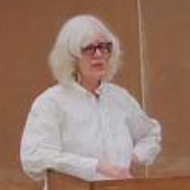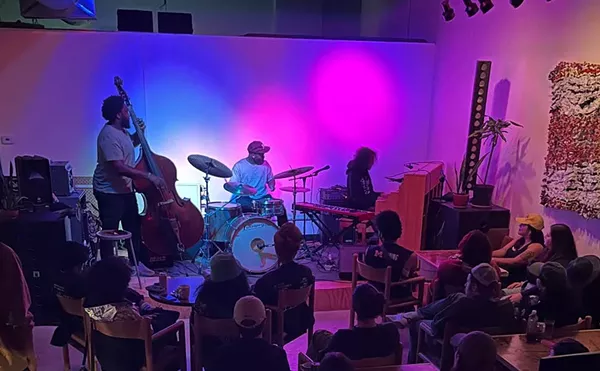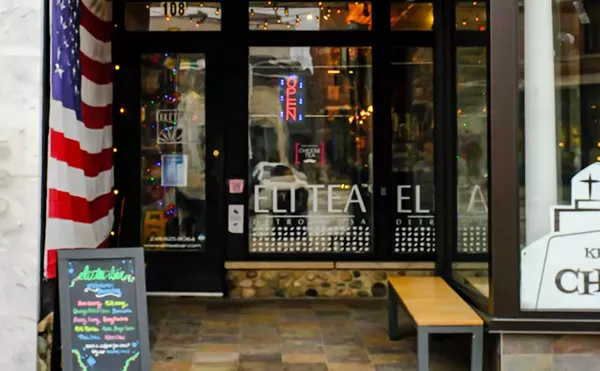Rita Ahluwalia believes she’s built her own little world — call it a Small World — in the basement of the International Institute (in the Cultural Center). “I used to call this place my Barbie Playschool Restaurant,” she says. “But hey, I’m making a real living.”
By sticking to her guns about hours — Small World has always served lunch only, three hours a day, Monday through Friday — Ahluwalia has made it possible to run a restaurant and have a life, something many of her peers find tricky.
“Let’s just say I feel grateful that I can create my own little world here and I don’t have to succumb to those other expectations that other people have,” she says.
Although she grew up in a restaurant family, Ahluwalia never used to cook, or even care about food. Her parents, Tirath (Terry) and Adjinder, ran the popular Peacock in Dearborn, one of the few Indian restaurants in the area when they opened it in 1982.
As a teenager, Ahluwalia hostessed at the Peacock and got a feel for what makes customers happy. But she only caught the food bug while in college at the University of South Carolina. She became a vegetarian and a waitress at a veggie restaurant, the Basil Pot in Columbia, S.C.
“You learn so much about food when you become a vegetarian,” Ahluwalia explains. “You would think it cuts down what you eat, but actually it expands your horizons. You’re forced to search out different cool things to eat, especially ethnic cuisines — where else are you going to go if you don’t eat meat?”
In 1993, the director of the International Institute, a Peacock fan, asked her parents if they knew someone who could open a restaurant in their basement. The Institute had low expectations: just some sandwiches for the foreign students who were studying English there.
Ahluwalia was just finishing college and went by to check the place out. “I don’t know why I said yes,” she says. “I said I would do it for six months, tops. The Institute had no idea this was going to happen” — “this” meaning the creation of a large and loyal following from the general public. “I remember I created this menu that didn’t have a hamburger on it, and some of the people who worked in the building said I’d never make it if I didn’t sell hamburgers.
“But I knew that this four corners was teeming with people who’d been around, and they were looking for something else. There’s no way I was going to serve deli food. You have to like what you cook.”
For her, that’s Indian curries and her daily pasta special, but Small World runs the international gamut from “Mideast feast” to quesadillas, Greek salad, pesto pizza and peanut butter cookies. Ahluwalia is no longer a vegetarian, and the café serves chicken as well as a weekly Middle Eastern lamb dish.
Customers include faculty from Wayne State and CCS, staff from the DIA and the medical center, “suits from downtown” — and a lot fewer students than anyone planned.
It took about a year for the word to get out, and then … “the power of word of mouth is amazing,” says Ahluwalia. “I’m in a basement — I’ve got no sign — I’ve never really advertised. It was amazing to watch how the word spread.”
So she learned on the job. “I took myself a lot more seriously back then,” she says. “By the time I was 25, I felt 40. I had to go past that and get enough wisdom to feel younger — to get older to feel younger.”
Still, dealing with crises such as broken dishwashers and ovens had its benefits. “I didn’t know that I knew how to deal with things like that,” she says, “but as they happen, I figure it out. It gives me the feeling that if I can handle this, I can handle … life.”
Ahluwalia sometimes feels guilty about not having paid her dues in the restaurant business. Recently she went through the culinary arts program at Schoolcraft College to find out what it’s like in the “real restaurant world.”
“Sometimes I think I’m hiding down here,” she says. At Schoolcraft, she learned that “it’s mostly men that cook, that women have a harder time getting taken seriously. You have to deal with a lot of egos. And there’s a lot of hype.”
She learned about “the hierarchy and what it takes to work in some of the kitchens in this town, what you have to go through — it’s hard.”
So forget hard — she feels lucky that she can work 25 hours a week, serving what she wants to, to people who are constantly telling her how grateful they are that Small World is there.
In her free time, Ahluwalia likes to go out to dinner with friends and work on projects such as the Terry Ahluwalia Memorial Golf Tournament, a benefit for Focus:Hope. It’s her attempt to bring people together from different parts of the community. Although she travels and sometimes thinks she’s shopping for another city, she says that being part of the Detroit community is why she keeps staying: “One thing about [Small World] is that people run into people here that they know from different parts of their life. Detroit is so good for that in general. You can’t go anywhere without running into somebody that you know.”
She doesn’t feel part of the Indian community, however: “I don’t go to the temple. I don’t think there are too many Indian women like me.”
Her beefs about the restaurant business are few. Typically, she says, owners and chefs have two complaints — the hours and their employees — but her staff of seven is “all-time awesome. The right person seems to walk into my life when I need them. My kitchen staff has been with me for six years. They take care of me. It’s one of our rituals, after we close, to sit down together and eat.”
She does complain, though, about the restaurant scene in Detroit. Her verdict: “The medium is totally missing. You can go out for a falafel or a coney, and then you have fine dining downtown. For something in-between, Union Street and the Majestic fill that niche.”
Like most restaurant folks, she doesn’t cook much at home. She made dinner for a date the other night and found it odd: “How do you cook for one? I’m used to 50 or 100.”
After carefully constructing a small world with a small work week, times could be changing for Ahluwalia. In March, the restaurant began serving dinner from 5:30 to 8:30 p.m. every other Friday, to help out the International Institute’s English-Speaking Coffeehouse (a gathering, with entertainment, meant to give students practice opportunities). But it’s open to the public, and undoubtedly the word will spread at warp speed (you read it here). Will Ahluwalia resist demands to open every Friday night, and then on weekends?
I predict so. She’s not out to conquer worlds.
“There are definitely times when I feel down on myself for doing the same thing for so long,” she says. “There are days when I feel like that, and then there are days when I feel like we do such a good thing. We have great food. We have great customers. We have good food morals.”
Small World Café is at 111 E. Kirby (in the International Institute), Detroit. Call 313-874-2233.
Read other chefs' stories in Chow (this week's special restaurant collection):
• Dish packs another (and another) helping of the East Side’s finest cuisine.
• Eastern paths meet Western ways at the up-to-the-minute Eurasian Grill.
• There are no mad hatters at Fiona’s Tea House, only scones and assorted wonders.
• Misha’s is "home cooking" with a rich and moving past.
• New Yasmeen Bakery’s Souad Bazzi serves up Lebanese cuisine "naturally."
• Chef Jeffrey Kalich makes Twingo’s a full-spectrum experience.







